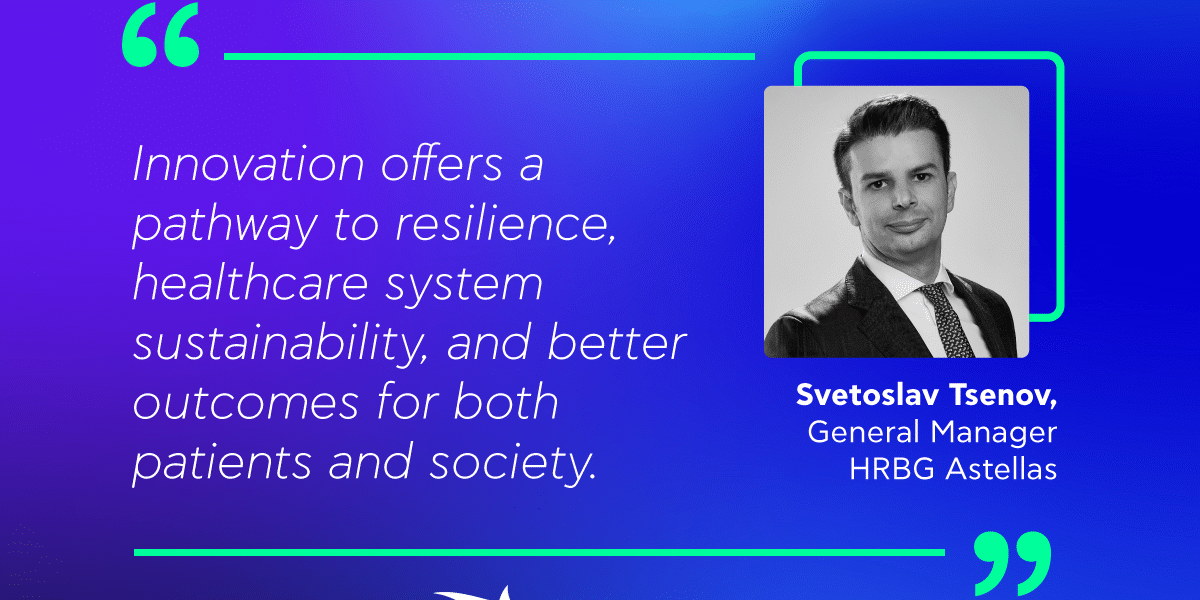Innovation as a National Priority: The Key to a Sustainable Healthcare System
At Astellas, we believe that innovation in biopharmaceuticals is not a luxury – it is a necessity in today’s ever-evolving healthcare landscape. Innovation has revolutionized the way we detect, treat, and manage diseases. From rare genetic disorders to chronic illnesses such as cancer, modern medicines have driven the shift from palliative care to precision medicine, from treatment to prevention, and from survival to improved quality of life.
These advances are especially critical for Greece. Chronic diseases are on the rise, the population is aging, and the healthcare system is under increasing financial pressure. However, these challenges also present a significant opportunity: innovation offers a pathway to resilience, sustainability in healthcare, and better outcomes for both patients and society.
The biopharmaceutical industry is uniquely positioned to deliver on this commitment. As the scientific backbone behind some of the most transformative healthcare breakthroughs in recent decades, the industry provides high-skilled jobs, economic investment, and data-driven insights for public health policymaking—alongside life-changing therapies.
At this pivotal time, when the Greek healthcare system must balance economic sustainability with fair access to innovation, the need for a shared vision and collaborative solutions becomes urgent. In this context, Astellas aligns with the “Voices of Innovation” initiative by PhARMA Innovation Forum, which unites the voice of the biopharmaceutical community around critical issues such as the value of innovative treatments for patients, predictability in pharmaceutical policy, the use of data, investment attraction, and the support of highly skilled employment. We believe that through dialogue, we can advance a strategic, sustainable, and socially equitable healthcare model—one in which the role of innovation is recognized as a catalyst for transformation and resilience.
However, for Greece to fully leverage its potential, we must improve the conditions that foster innovation. Currently, more than one in two therapies approved by the European Medicines Agency (EMA) between 2020–2023 did not reach patients in Greece, according to the latest “Patients W.A.I.T. Indicator 2024” report. The EFPIA study reviewed the rollout of 173 innovative medicines approved by EMA between 2019 and 2022. Greece’s availability rate for these therapies stands at just 43%, below the European average. As a result, patient access is limited, and Greece risks becoming a secondary market for global innovation.
We need a new narrative – one that views pharmaceutical innovation as a strategic driver for both economic and health advancement, rather than a cost to be contained. By reducing hospitalizations, improving disease management, and empowering patients to lead independent, productive lives, innovative medicines ultimately reduce the long-term cost burden on the healthcare system.
Establishing a pharmaceutical strategy that is reliable, transparent, and forward-looking at a national level is essential. Patient access to innovative therapies can be improved, sustainable funding for biopharmaceutical innovation can be secured, and research and investment can be safeguarded through a framework agreement between the state and the industry – built on shared responsibility.
With the right political will, real-time outcome monitoring, digital prescribing tools, and a transitional reimbursement model for high-value therapies are not ambitious goals – they are essential and feasible health policies. Meanwhile, innovation continues to invest in Greece’s future by funding clinical research, generating real-world data, and training the next generation of scientists and healthcare professionals.
Innovation saves lives and builds societal resilience. It reduces inequality and restores dignity. Its place at the core of healthcare policy must be protected now. We must shift away from fragmented, reactive measures toward a strategic vision for health – one in which the biopharmaceutical industry is recognized as a key partner in building a healthier, more sustainable future, where all Greek patients have timely and fair access to the benefits of pharmaceutical technology.
Svetoslav Tsenov, General Manager HRBG, Astellas









